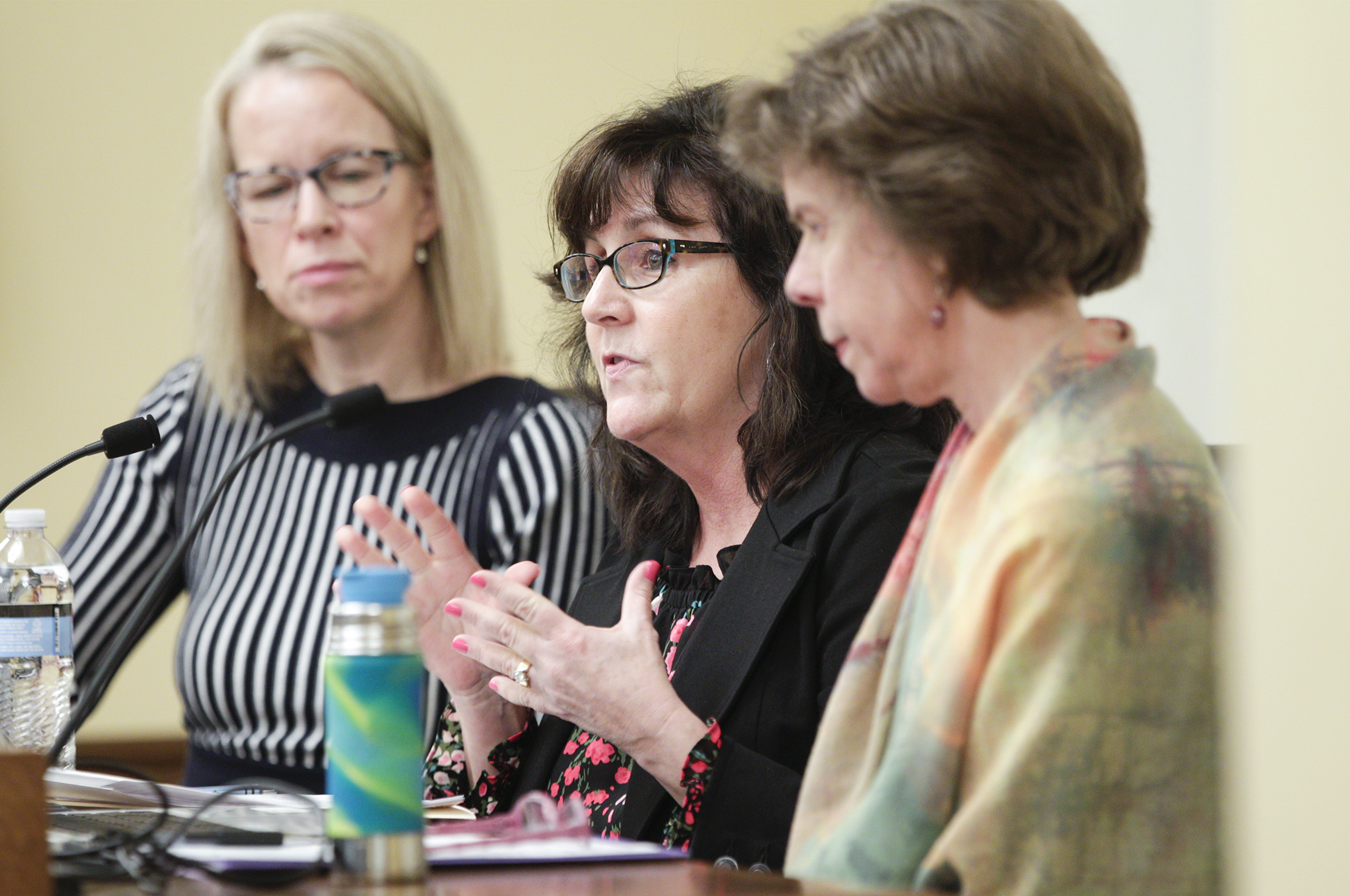Division considers proposal to reduce youngest learners’ device usage

Tablets, smartphones and individual-use devices are a staple in and out of the classroom, but mounting evidence suggests this technology — if not used sparingly — can have detrimental effects on kids’ health and well-being.
“I’m happy to be here today to talk to you about what I really feel is the largest parenting issue of our generation, which is screen time,” Judy Stoffel, a parent, author and screen-time researcher told the House Early Childhood Finance and Policy Division Tuesday.
To reduce youngest learners’ device exposure, HF3504, as amended, would prohibit children in publicly funded preschools from using an individual-use screen, such as a tablet or smartphone, without engagement from a teacher or other student.
The bill, sponsored by Rep. Kelly Morrison (DFL-Deephaven), was held over for further consideration. The companion, SF3310, awaits action by the Senate E-12 Finance and Policy Committee. Sen. Steve Cwodzinski (DFL-Eden Prairie) is the sponsor.
The proposal aligns with the American Academy of Pediatrics’ recommendation that children younger than 18 months should not be exposed to screens, with the exception of video chat with a parent or adult. It also recommends that children ages 2 to 5 be exposed to one hour maximum per day, and that hour should be co-viewing with an adult.
The recommendation reflects recent data that indicates even minimal screen time in young children leads to negative heath impacts. Stoffel cited a 2019 report by JAMA Pediatrics, which shows kids under age 5 exposed to screens one hour per day experienced cognitive decline and struggled with language and memory functioning.
“I’m not anti-tech. I think the genie’s out of the bottle,” she said. “I have a cell phone, my children have devices, but I do think there’s a big difference between a young child using these devices and adults using screens.”
The impacts of individual device usage on kids is more detrimental than traditional TV viewing because devices can accompany individuals everywhere, they’re also more fast-paced and designed to addict users, according to Stoffel.
“We have these Paleolithic brains and we’re not made to look at something like this all day long, moving very, very fast, with all the different colors and lights, which is why the TV — 20 feet away — we’re much more comfortable with,” she said.
In addition to cognitive delays, device usage takes time away from activities that support development, such as play, sensory learning, reading, talking to peers, listening to stories and singing, according to Lisa Venable, a psychotherapist and early childhood consultant.
While supportive of the goal of the bill, Rep. Kristin Bahner (DFL-Maple Grove), opposes the successful amendment, which deleted language that would have required the Department of Education to commission a statewide public service campaign to educate adults on the impacts of screen use by children and parents.
“I think it’s the key part of this bill,” Bahner said. “It feels like that is not going to be the most effective without having that.”
The public service campaign would require funding, Morrison said, and given that it’s not a budget year, they want to begin with the policy implementation portion this year. She indicated the educational component would be revisited next year.
Other members’ feedback was relatively positive, though several had questions and suggestions on how to improve the proposal.
Rep. Lisa Demuth (R-Cold Spring) asked how limiting the amount of screen time would impact special needs students, particularly students that rely on technology to communicate, and asked that an amendment be added at some point during the legislative process to exempt some students from the proposal.
Related Articles
Search Session Daily
Advanced Search OptionsPriority Dailies
Ways and Means Committee OKs proposed $512 million supplemental budget on party-line vote
By Mike Cook Meeting more needs or fiscal irresponsibility is one way to sum up the differences among the two parties on a supplemental spending package a year after a $72 billion state budg...
Meeting more needs or fiscal irresponsibility is one way to sum up the differences among the two parties on a supplemental spending package a year after a $72 billion state budg...
Minnesota’s projected budget surplus balloons to $3.7 billion, but fiscal pressure still looms
By Rob Hubbard Just as Minnesota has experienced a warmer winter than usual, so has the state’s budget outlook warmed over the past few months.
On Thursday, Minnesota Management and Budget...
Just as Minnesota has experienced a warmer winter than usual, so has the state’s budget outlook warmed over the past few months.
On Thursday, Minnesota Management and Budget...